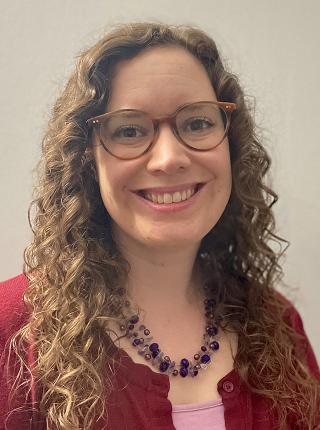Related Articles
00 / 00

LINC Lab – Leveraging Implementation Research, Navigation and Communication to increase equity and access
Principal Investigator
Research Professor
Health Communications and Health Disparities
Co-Director, GMaP Region 4
Co-Lead, NCI's Cancer Center Cessation Initiative (C3I)
Mission Statement:
The Fleisher Lab is committed to conducting pragmatic, real-world research that helps patients better understand their care through effective health communication, while working to reduce health disparities and bridge gaps in access. Building on more than 30 years of work in health disparities and communication, our team uses implementation science to bring evidence-based tools and interventions into both clinical and community settings. We are especially committed to reaching underserved populations and ensuring that solutions are not only developed and disseminated efficiently – but used in ways that make a meaningful difference in people’s lives.
Current Projects
• mychoice™: An online educational tool developed to support shared decision-making about clinical trials as a treatment option. Serving as PI, Dr. Fleisher is leading an ongoing implementation study to evaluate the tool’s accessibility and effectiveness in increasing trial awareness and participation among diverse patient populations.
• Tobacco Treatment Program (TTP): In alignment with the NCI’s C3I initiative, the lab co-leads efforts to expand Fox Chase’s TTP using implementation science to improve infrastructure, including a tobacco registry, and assess program impact. A companion study evaluates the role of Patient Navigators – identified via EMR feeds – in supporting cessation through personalized, longitudinal support.
• Stand Up To Cancer (SU2C) ADACT Initiative: Aims to address disparities in clinical trial access, particularly in early phase trials, across the Temple University Health System. Dr. Fleisher co-leads this multifaceted project focused on strengthening infrastructure, enhancing patient support, and fostering community engagement to increase trial diversity and enrollment.
Emerging Projects
• Pan-PACT (Promoting Access to Clinical Trials in Pancreatic Cancer), Co-PI Chris Cann: Focused on improving clinical trial participation among underrepresented racial and ethnic groups, this initiative targets systemic gaps at Temple Health–Fox Chase Cancer Center. Building on early evidence, the project integrates patient-centered education and workflow redesign to address barriers faced by Black and Hispanic patients with pancreatic cancer.
• RECONNECT Initiative, Co-PIs Shazia Nakhoda and Zachary Frosch: A multi-pronged effort to increase equitable access to cancer clinical trials across the Temple University Health System and Fox Chase Cancer Center. Co-led by a team of investigators, the project introduces two targeted interventions: (1) a physician-focused communication training to improve discussions around clinical trials and structural barriers to care, and (2) a culturally informed Clinical Trials Educator and Coordinator (CTCE) program to support early identification, education, and navigation of historically underrepresented patients.
Previous Projects
• MyCareCompass: An EMR-integrated platform designed to deliver just-in-time educational content to patients, reducing anxiety and improving procedural preparedness. Dr. Fleisher served as PI during Fox Chase’s 2020 pilot of port insertion and psychosocial videos, which is now standard care; new modules, like the surgical ostomy module, are currently being piloted in collaboration with Nursing.
• CAPE Initiative: Provides multimedia education to patients newly diagnosed with non-small cell lung cancer, helping them better understand their treatment options and the role of genomic testing.
• GMaP Region 4 Program: A national initiative supporting the career development of underrepresented researchers, co-directed by Dr. Fleisher. While this initiative is coming to a close, resources through GMaP will still be widely available.
Research Professor
Health Communications and Health Disparities
Co-Director, GMaP Region 4
Co-Lead, NCI's Cancer Center Cessation Initiative (C3I)
Research Program
Cancer Prevention and Control)





Dr. Linda Fleisher is a Research Professor leading implementation, health disparities, and health communications research. With more than 40 years of experience, she leads pragmatic, practice-based research at the crossroads of implementation science, health disparities, health communication, digital health, and innovation. During her initial tenure at Fox Chase (1984-2013), she was the Senior Director and ultimately Principal Investigator of the NCI’s Cancer Information Service (1993-2010), Co-Director of the CIS Research Consortium Intervention & Development Core (2005-2010), Founding Director of Fox Chase’s Community Outreach and the Resource Education Center (2000-2013), and Co-Director of the NCI’s Region 4 GMaP program (2010-2023).
Between 2013 and 2019, Dr. Fleisher broadened her work in digital health at the Children’s Hospital of Philadelphia’s (CHOP) Research Institute, while also serving as an Adjunct Research Professor at Fox Chase and the University of Pennsylvania’s Perelman School of Medicine. At CHOP, she was PI of an NSF STTR grant focused on building digital health evaluation tools, Merck funded digital health study and other research projects. She was Co-Director of the mHealth Research Affinity Group and a Research Liaison to the Office of Digital Health. Even during this time, she remained closely connected to Fox Chase, continuing her research in clinical trials and cancer disparities.
Dr. Fleisher rejoined the Fox Chase faculty in 2019 in Cancer Prevention and Control establishing her own lab. During this time a number of research projects have been successfully funded and launched. She is a strong collaborator, working closely with colleagues and various interdisciplinary teams to address health disparities and implementation of evidence-based interventions, while integrating both digital health and implementation science into research.
Building on her research in patient navigation, she participates in national level organizations focused on patient navigation leveraging her experience with her patient navigation demonstration project and statewide navigator network. She is Co-Chair of American Cancer Society’s National Navigation Roundtable (2022-present). She has continued her training in implementation science and was selected to participate in the NCI Mentored Training in Implementation Science, served as a Co-I on several implementation studies, and is continuing her research involving integration of evidence-based research into practice.
Widely recognized for her leadership in health disparities, patient navigation and implementation practice and research, Dr. Fleisher has received multiple prestigious awards, published over 100 peer-reviewed articles, and led numerous grants from the NCI, NSF, Pennsylvania Department of Health, and private industry. She is also a dedicated mentor to students and serves on editorial boards for several academic journals. As of 2023, she continues to hold national leadership roles that support health equity, patient navigation, and public health, working collaboratively to improve access to quality care through research that makes a real impact.
The LINC Lab
Dr. Fleisher’s lab, the LINC Lab, is working on multiple research and quality improvement initiatives focused on the integration of evidence-based tools into community and clinical practice. The Lab has had a major role in the development and testing of mychoiceTM, an online educational tool designed to promote shared-decision making around clinical trials as a treatment option, of which the research portfolio spans nearly a decade. Through a previously conducted randomized control trial and user testing, mychoiceTM has been well received by patients and providers, and the lab continues to evaluate the implementation of the tool into diverse clinical settings.
In response to the NCI Moonshot Initiative for the expansion of the Cancer Center Cessation Initiative (C3I) to develop tobacco cessation treatment capacity and infrastructure for cancer patients, Fox Chase has been awarded funding to expand its Tobacco Treatment Program (TTP). Dr. Fleisher serves as a Co-Lead on this initiative designing the optimization of the tobacco program through the establishment of a tobacco registry, application of Implementation Science frameworks and evaluating the impact of the program on behavior.
Previously, the LINC Lab led two other projects, MyCareCompass and CAPE, both of which are patient education digital health tools. MyCareCompass is a platform developed by ARCHES that integrates into the EMR to deliver just-in-time patient education. Fleisher was PI on the multi-disciplinary pilot project, which aimed to evaluate the implementation of the platform into real-world clinical workflows and its impact on patients’ experience. The results were highly positive: MyCareCompass showed to reduce patient anxiety and helped them prepare for upcoming procedures and now has become integrated into Fox Chase’s patient education strategies. CAPE is a digital education platform for patients newly diagnosed with Non-small Cell Lung Cancer that provides a multimedia approach to vetted patient education and can deliver the material in a flexible, user-friendly environment. The focus of the evaluation was to determine the feasibility of implementation in diverse clinical settings and its impact on patient knowledge about lung cancer and genomic testing, as well as preparation for shared treatment decision making.
An important distinction among these initiatives is the integration and connection between programmatic development, stakeholder engagement and practice-based research. Dr. Fleisher and her team utilize their multidisciplinary training in public health, project management, and clinical coordination to work in collaboration with racial and ethnic minority communities, local, state and federal public health organizations, and other professional organizations.
1. Fleisher, L., Gentry, E., Gonzalez, E., & Tillman, A. (2018). Community Outreach. In Team-Based Oncology Care: The Pivotal Role of Oncology Navigation (pp. 111-124). Springer, Cham.
2. Fiks, A. G., Fleisher, L., Berrigan, L., Sykes, E., Mayne, S. L., Gruver, R., ... & McMahon, P. (2018). Usability, acceptability, and impact of a pediatric teledermatology mobile health application. Telemedicine and e-Health, 24(3), 236-245.
3. Check, D., Zullig, L.L., Stover, A.M., Davies, L., Schroek, F. R., Fleisher, L., Chambers, D., Proctor, E., Koczwara, B. Quality improvement and implementation science in cancer care: Identifying areas of synergy and opportunities for further integration. Journal of Clinical Oncology, 37(21), 29, 2019 Oct 16. DOI: 10.1200/JCO.2019.37.27_suppl.29
4. Fleisher, L, Bass, S, Shwarz, M, Washington, A, Nicholson, A, Alhajji, M, Geynisman, DM, Maurer, L, Greener, J, Kenny, C. Using theory and user-centered design in digital health: The development of the mychoiceTM communication tool to prepare patients and improve informed decision making regarding clinical trial participation. Psycho-oncology, 2020 Jan; 29(1):114-122. doi: 10.1002/pon.5254. PMID: 31654442.
5. Alhajji M, Bass SB, Nicholson A, Washington A, Maurer L, Geynisman DM, Fleisher L. Comparing Perceptions and Decisional Conflict Towards Participation in Cancer Clinical Trials Among African American Patients Who Have and Have Not Participated. J Cancer Educ. 2022 Apr;37(2):395-404. doi: 10.1007/s13187-020-01827-w. PMID: 32654038.
6. Casilang CG, Stonbraker S, Japa I, Halpern M, Messina L, Steenhoff AP, Lowenthal ED, Fleisher L. Perceptions and Attitudes Toward Mobile Health in Development of an Exclusive Breastfeeding Tool: Focus Group Study With Caregivers and Health Promoters in the Dominican Republic. JMIR Pediatr Parent. 2020 Aug 21;3(2):e20312. doi: 10.2196/20312. PMID: 32821063; PMCID: PMC7474414.
7. Dwyer AJ, Wender RC, Weltzien ES, Dean MS, Sharpe K, Fleisher L, Burhansstipanov L, Johnson W, Martinez L, Wiatrek DE, Calhoun E, Battaglia TA; National Navigation Roundtable. Collective pursuit for equity in cancer care: The National Navigation Roundtable. Cancer. 2022 Jul 1;128 Suppl 13:2561-2567. doi: 10.1002/cncr.34162. PMID: 35699616.
8. Battaglia TA, Fleisher L, Dwyer AJ, Wiatrek DE, Wells KJ, Wightman P, Strusowski T, Calhoun E; National Navigation Roundtable Evidence-Based Task Group. Barriers and opportunities to measuring oncology patient navigation impact: Results from the National Navigation Roundtable survey. Cancer. 2022 Jul 1;128 Suppl 13:2568-2577. doi: 10.1002/cncr.33805. PMID: 35699612.
9. Wells KJ, Wightman P, Cobian Aguilar R, Dwyer AJ, Garcia-Alcaraz C, Saavedra Ferrer EL, Mohan P, Fleisher L, Franklin EF, Valverde PA, Calhoun E; National Navigation Roundtable Evidence-Based Task Group. Comparing clinical and nonclinical cancer patient navigators: A national study in the United States. Cancer. 2022 Jul 1;128 Suppl 13(Suppl 13):2601-2609. doi: 10.1002/cncr.33880. PMID: 35699618; PMCID: PMC9205656.
10. Psihogios AM, King-Dowling S, O'Hagan B, Darabos K, Maurer L, Young J, Fleisher L, Barakat LP, Szalda D, Hill-Kayser CE, Schwartz LA. Contextual Predictors of Engagement in a Tailored mHealth Intervention for Adolescent and Young Adult Cancer Survivors. Ann Behav Med. 2021 Nov 18;55(12):1220-1230. doi: 10.1093/abm/kaab008. PMID: 33674863; PMCID: PMC8825221.
11. Rigotti, N.A., Taylor K.L. Beneventi D.M., King A.C., Kotsen C., Fleisher L., Goldstein A.O., Park E.R., Sherman S.E., Steinberg M.B., Albert D.A., Cox L.S., Hayes R.B., Hohl S.D., Sheffer C.E., Shoenbill K.A., Simmons V.N., Warren G.W., Adsit R., Minion M., Pauk D., Rolland B. Telehealth Delivery of Tobacco Cessation Treatment in Cancer Care: An Ongoing Innovation Accelerated by the COVID-19 Pandemic. Journal of the National Comprehensive Cancer Network 19.Suppl_1 (2021): S21-S24. https://doi.org/10.6004/jnccn.2021.7092. Web. 22 Nov. 2022. PMCID: PMC9040141. PMID: 34872049.
12. Schnoll R., Chen, L., Ramsey A. T., Presant C.A., Jose T., Ashing K.T., Shelley, D., Bernstein, S. L., Fleisher, L., Salloum, R., Warren G., Wiseman, K.P., Blalock, J.A., Dahl, N., Farka, E.B., Joseph, S., Manders, D., Ostroff, J.S., Park, E.R., Adsit, R., Hohl, S.D., Minion, M., Pauk, D., Rolland, B. Implementation Science to Improve Tobacco Cessation Services in Oncology Care. J Natl Compr Canc Netw. 2021 Nov;19(Suppl_1):S12-S15. doi: 10.6004/jnccn.2021.7094. PMID: 34872048; PMCID: PMC9047055.
13. Salloum, R.G., Fleisher, L., Hohl, S.D., Clark, S.V., Klass, E., Dahl, N., Pike, B., Lenhoff, K.L., Presant, C.A., Shoenbill, K.A., Ramsey, A.T., Jose, T., Day, A.T., Dark, M., Yeung, S., Tong, E.K., Prochaska, J.J., Ostroff, J.S., Shelley, D., Warren, G.W., Adsit, R., Minion, M., Pauk, D., Rolland, B. Sustainability of Tobacco Treatment Programs in the Cancer Center Cessation Initiative. J Natl Compr Canc Netw. 2021 Nov;19(Suppl_1):S16-S20. doi: 10.6004/jnccn.2021.7093. PMID: 34872053; PMCID: PMC9036976.
14. Adsul, P., Chambers, D. A., Brandt, H. M., Fernandez, M.E., Ramanadhan, S., Torres, E., Leeman, J., Baquero, B., Fleisher, L., Escoffery, C. E., Emmons, K., Montserrat, S., Oh, A., Korn, A. K., Wheeler, S., Shelton, R. C. Grounding Implementation Science in Health Equity for Cancer Prevention and Control. Implement Sci Commun. 2022 Jun 3;3(1):56. doi: 10.1186/s43058-022-00311-4. PMID: 35659151; PMCID: PMC9164317.
16. Fleisher L., Kenny, C., Rusten, C., Koren, D., Landau, Z. Right information, Right Patient, Right Time: Utilizing the MyCareCompass Platform to Deliver Patient Education in the Oncology Setting. Journal of Cancer Education. 2023. 38:1420–1428. https://doi.org/10.1007/s13187-023-02350-4
17. Fleisher L., K.C., Gentry, E., Cancer Advocacy & Patient Education (CAPE) Lung Pilot Study Evaluation: Findings From 4 Diverse Clinical Settings for Future Implementation and Dissemination. Journal of Oncology Navigation & Survivorship, August 2023. 14(8).
18. Kilbride, M., Egleston, B.L., Chung, W.K., Olopade, O., Maxwell, K.N., Shah, P., Churpek, J.E., Fleisher, L., Terry, M., Fetzer, D., Bennett Gaieski, J., Bulafka, J., Espinal, A., Karpink, K., Walser, S., Singleton, D., Palese, M., Siljander, I., Brandt, A., Clark, D., Koval, C., Wynn, J., Long, J.M., McKenna, D., Powers, J., Nielsen, S., Domchek, S.M., Nathanson, K.L., Bradbury, A.R. Uptake of Genetic Research Results and Patient-Reported Outcomes With Return of Results Incorporating Web-Based Predisclosure Education. 2023. Journal of Clinical Oncology. 2023 Nov 1;41(31):4905-4915. doi: 10.1200/JCO.22.00516. Epub 2023 Aug 23. PMID: 37611220. PMCID: PMC10617912 (available on 2024-11-01)
19. Henderson, T.O., Egleston, B.L., Allen, M.A., Mim, R., Fleisher, L., Elkin, E.B., Oeffinger, K.C., Krull, K.R., Ofidis, D., Mcleod, B., Griffin, H., Wood, E., Howe, S., Cacioppo, C., Brown, S., Weinberg, M., Perpich, M., Armstrong, G.T., Bradbury, A.R. Uptake of germline cancer genetic services in a randomized trial of remote telehealth services as compared to usual care: A report from the Childhood Cancer Survivor Study (CCSS). JCO 42, 10009-10009(2024). DOI:10.1200/JCO.2024.42.16_suppl.10009
20. Triue P, Fetzer D, McLeod B, Schweickert K, Gutstein L, Egleston B, Domchek S, Fleisher L, Wagner L I, Wen K, Cacioppo C, Ebrahimzadeh J E, Falcone D, Langer C, McCarty-Wood E, Karpink K, Posen S, Selmani E, Bradbury A. A digital genetic health portal for patients who have received germline cancer genetic test results: Development, user and usability testing of MyCancerGene (Accepted).
21. Hoadley A, Fleisher L, Kenny C, Kelly P, Ma X, Wu J, Guerra C, Leader A, Alhajji M, D’Avanzo P, Landau Z, Bass S. Exploring Racial Disparities in Awareness and Perceptions of Oncology Clinical Trials: Cross-Sectional Analysis of Baseline Data From the mychoice Study. JMIR Cancer 2024;10:e56048. https://cancer.jmir.org/2024/1/e56048. DOI: 10.2196/56048. PMID: 39348891
22. Triue P, Fetzer D, McLeod B, Schweickert K, Gutstein L, Egleston B, Domchek S, Fleisher L, Wagner L, Wen K, Cacioppo C, Ebrahimzadeh JE, Falcone D, Langer C, McCarty-Wood E, Karpink K, Posen S, Selmani E, Bradbury A. Developing the MyCancerGene Digital Health Portal to Improve Patients’ Understanding of Germline Cancer Genetic Test Results: Development, User, and Usability Testing Study. JMIR Formative Research (Accepted).